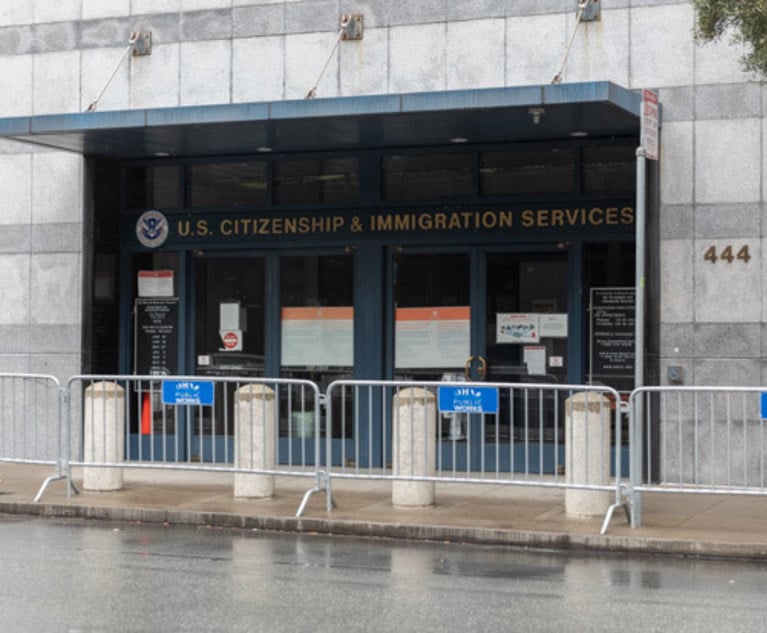 From left, Edwin Buffmire, James Carlos McFall and Miguel Ortiz, of the Dallas office of Jackson Walker. (Courtesy photo)
From left, Edwin Buffmire, James Carlos McFall and Miguel Ortiz, of the Dallas office of Jackson Walker. (Courtesy photo)Challenges of Zoom Jury Trials: Lawyer Rapport, Equal Protections, Technology Hurdles
Lawyers and courts should be asking whether the convenience of the technology is outweighed by the deprivations accompanying this new form of remote justice.
June 03, 2020 at 08:15 PM
6 minute read
Courts across the country are experimenting with hearings and bench trials by Zoom and WebEx to attempt to ensure the continued administration of justice during the COVID-19 pandemic. In May, a Collin County district court held a one-day civil jury trial via Zoom. The trial is believed to be the first ever remote jury trial to take place on a videoconferencing platform. Requiring parties to conduct a jury trial remotely raises a number of practical and legal issues. Indeed, as Texas Lawyer reported, a survey by the Harris County judiciary found that 74% of attorneys were opposed to remote jury trials.
Lawyers and courts should be asking whether the convenience of the technology is outweighed by the deprivations accompanying this new form of remote justice. Here are some considerations:
|Building Rapport
As renowned jury consultant Jason Bloom put it, "For attorneys and witnesses, a positive juror perception can mean the difference between winning and losing a case." Rapport with jurors is "essential to being deemed credible, reliable, and ultimately persuasive in the courtroom."
The videoconference setting will require adaptation as various verbal and non-verbal communication methods are stunted. For example, jurors often comment that interactions between lawyers and clients or staff shape views on credibility and even the merits. Eye contact and body language can enhance rapport and shape perception by projecting confidence and trustworthiness. An attorney projecting to jurors' homes on a small screen presents little opportunity to convey these messages.
Instead, screen-based presentation raises questions as to how backgrounds might be manipulated to influence jurors toward certain witnesses or lawyers. For example, a home environment might humanize an otherwise unrelatable witness. Similarly, juror backgrounds might provide information not otherwise available in the courtroom setting.
|Technological Hurdles
There is a risk of distracted jurors in every trial setting. Indeed, even the most dynamic and seasoned trial attorneys struggle to keep jurors engaged in the courtroom jury trial setting. The risk of distraction is even greater by videoconference. In the Collin County Zoom trial, for example, a juror temporarily left the proceeding to take a phone call. Lawyers will need to adapt dynamic presentation skills to this new environment to enhance engagement.
And that assumes the full presentation reaches more than a dozen viewers, when the proceeding requires technological competence of participants with varying technology and internet connections. Anyone participating in the many videoconferences lately understands that meaningful participation is impossible when technology fails.
|Challenges to Routine Trial and Presentation
Lastly, how will attorneys effectively conduct routine trial and presentation tasks that cannot easily be recreated in the videoconference setting? The size and functionality of the virtual screen make it difficult for attorneys to present jurors with demonstrative summaries of testimony or depictions of events created by the attorneys often so valuable to the courtroom narrative. Those challenges are even more daunting in complex multiparty cases that can involve more than a dozen lawyers on each side all appearing on the same screen.
|Legal Considerations
U.S. District Chief Judge Barbara M.G. Lynn of the Northern District of Texas recently went to extraordinary efforts to customize her courtroom and procedures to ensure a jury trial took place in court, safely, with public access. One fundamental reason may be the myriad legal rights that a remote proceeding may threaten.
Technology presents problems beyond connection issues. Use of computer equipment and cameras threatens equal protection. The Supreme Court recognized that juries must reflect the communities from which they are chosen: "Juries as instruments of public justice" must be "a body truly representative of the community." Today, many communities—especially, urban, rural, immigrant and elderly communities—lack equal access to technology sufficient to participate in a remote jury trial. There is no Wi-Fi or camera prerequisite to these constitutional guarantees.
Courts are considering various ways to provide potential jurors access to computers and the internet in order to avoid equal protection problems, e.g., providing laptops and wireless hotspots on a temporary basis or "remote jury rooms" at the courthouse. Creative solutions are necessary to ensure that civil and criminal juries remain representative of our communities.
Further, courts have long recognized the importance of live access to the courtroom and jury: "The right of the defendant to be present and testify in his behalf before the jury is a valuable right which should not be denied when his presence at the trial is beyond his control," as in National Insurance Co. of America v. Broome, (Tex. App. 1966). On the other hand, indefinite delay of live jury trials may threaten the right altogether, requiring a remote alternative.
Of course, Federal Rule of Civil Procedure 43(a) and state analogues contemplate the use of videoconferencing for "good cause in compelling circumstances with appropriate safeguards." As travel restrictions linger, and the pandemic renders witnesses unable to attend proceedings in person, we expect Rule 43 to play a central role.
Criminal cases present even more issues. As the Supreme Court wrote in the criminal context, public trials are "essential" for the accused because "the presence of interested spectators … keep his triers keenly alive to a sense of their responsibility and to the importance of their functions," Waller v. Georgia. The Sixth Amendment expressly grants those accused the right to a public trial and the right to confront witnesses testifying against them. These same truths hold value in civil trials.
|Conclusion
Videoconferencing platforms such as Zoom and Webex have enabled our judicial system to function as we reduce the spread of COVID-19. The new trial format, however, raises legal and practical challenges that must be carefully considered. It remains to be seen whether remote jury trials offer a temporary solution by agreement or a lasting change that courts can impose on a party asserting its right to be present before witnesses and jurors. Courts, attorneys and litigants must diligently consider the important legal and practical sacrifices accompanying the innovation.
Edwin Buffmire and James Carlos McFall are trial lawyers in the Dallas office of Jackson Walker with First Amendment, antitrust and complex litigation practices. Miguel Ortiz is a litigation associate in the Dallas office.
This content has been archived. It is available through our partners, LexisNexis® and Bloomberg Law.
To view this content, please continue to their sites.
Not a Lexis Subscriber?
Subscribe Now
Not a Bloomberg Law Subscriber?
Subscribe Now
NOT FOR REPRINT
© 2024 ALM Global, LLC, All Rights Reserved. Request academic re-use from www.copyright.com. All other uses, submit a request to [email protected]. For more information visit Asset & Logo Licensing.
You Might Like
View All
Akin, Baker Botts, Vinson & Elkins Are First Texas Big Law Firms to Match Milbank Bonuses
4 minute read
Anticipating a New Era of 'Extreme Vetting,' Big Law Immigration Attys Prep for Demand Surge
6 minute read
Revenue Up at Homegrown Texas Firms Through Q3, Though Demand Slipped Slightly
3 minute read
From ‘Deep Sadness’ to Little Concern, Gaetz’s Nomination Draws Sharp Reaction From Lawyers
7 minute readLaw Firms Mentioned
Trending Stories
- 1Judge Denies Sean Combs Third Bail Bid, Citing Community Safety
- 2Republican FTC Commissioner: 'The Time for Rulemaking by the Biden-Harris FTC Is Over'
- 3NY Appellate Panel Cites Student's Disciplinary History While Sending Negligence Claim Against School District to Trial
- 4A Meta DIG and Its Nvidia Implications
- 5Deception or Coercion? California Supreme Court Grants Review in Jailhouse Confession Case
Who Got The Work
Michael G. Bongiorno, Andrew Scott Dulberg and Elizabeth E. Driscoll from Wilmer Cutler Pickering Hale and Dorr have stepped in to represent Symbotic Inc., an A.I.-enabled technology platform that focuses on increasing supply chain efficiency, and other defendants in a pending shareholder derivative lawsuit. The case, filed Oct. 2 in Massachusetts District Court by the Brown Law Firm on behalf of Stephen Austen, accuses certain officers and directors of misleading investors in regard to Symbotic's potential for margin growth by failing to disclose that the company was not equipped to timely deploy its systems or manage expenses through project delays. The case, assigned to U.S. District Judge Nathaniel M. Gorton, is 1:24-cv-12522, Austen v. Cohen et al.
Who Got The Work
Edmund Polubinski and Marie Killmond of Davis Polk & Wardwell have entered appearances for data platform software development company MongoDB and other defendants in a pending shareholder derivative lawsuit. The action, filed Oct. 7 in New York Southern District Court by the Brown Law Firm, accuses the company's directors and/or officers of falsely expressing confidence in the company’s restructuring of its sales incentive plan and downplaying the severity of decreases in its upfront commitments. The case is 1:24-cv-07594, Roy v. Ittycheria et al.
Who Got The Work
Amy O. Bruchs and Kurt F. Ellison of Michael Best & Friedrich have entered appearances for Epic Systems Corp. in a pending employment discrimination lawsuit. The suit was filed Sept. 7 in Wisconsin Western District Court by Levine Eisberner LLC and Siri & Glimstad on behalf of a project manager who claims that he was wrongfully terminated after applying for a religious exemption to the defendant's COVID-19 vaccine mandate. The case, assigned to U.S. Magistrate Judge Anita Marie Boor, is 3:24-cv-00630, Secker, Nathan v. Epic Systems Corporation.
Who Got The Work
David X. Sullivan, Thomas J. Finn and Gregory A. Hall from McCarter & English have entered appearances for Sunrun Installation Services in a pending civil rights lawsuit. The complaint was filed Sept. 4 in Connecticut District Court by attorney Robert M. Berke on behalf of former employee George Edward Steins, who was arrested and charged with employing an unregistered home improvement salesperson. The complaint alleges that had Sunrun informed the Connecticut Department of Consumer Protection that the plaintiff's employment had ended in 2017 and that he no longer held Sunrun's home improvement contractor license, he would not have been hit with charges, which were dismissed in May 2024. The case, assigned to U.S. District Judge Jeffrey A. Meyer, is 3:24-cv-01423, Steins v. Sunrun, Inc. et al.
Who Got The Work
Greenberg Traurig shareholder Joshua L. Raskin has entered an appearance for boohoo.com UK Ltd. in a pending patent infringement lawsuit. The suit, filed Sept. 3 in Texas Eastern District Court by Rozier Hardt McDonough on behalf of Alto Dynamics, asserts five patents related to an online shopping platform. The case, assigned to U.S. District Judge Rodney Gilstrap, is 2:24-cv-00719, Alto Dynamics, LLC v. boohoo.com UK Limited.
Featured Firms
Law Offices of Gary Martin Hays & Associates, P.C.
(470) 294-1674
Law Offices of Mark E. Salomone
(857) 444-6468
Smith & Hassler
(713) 739-1250






